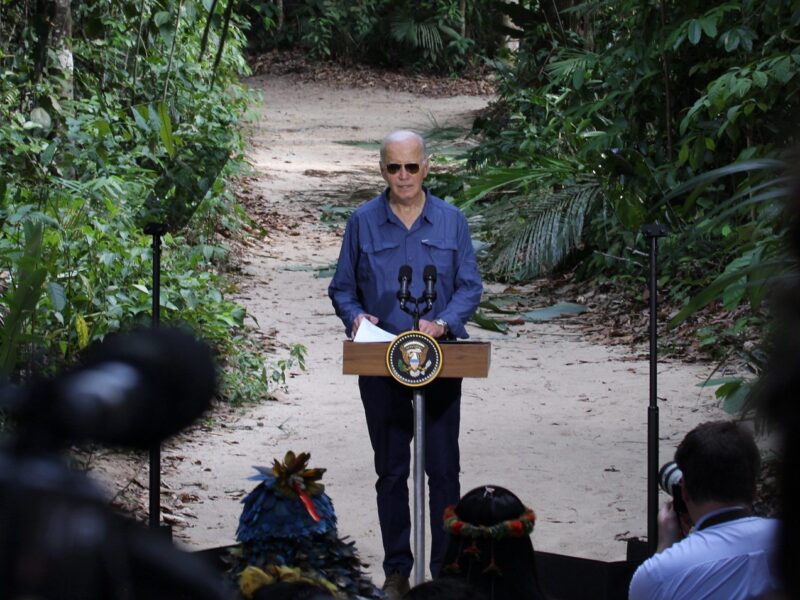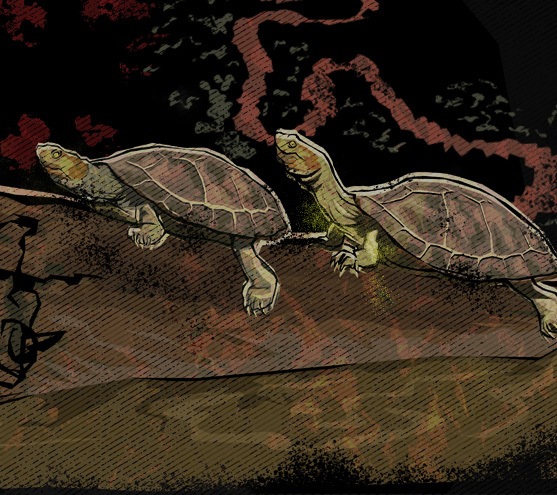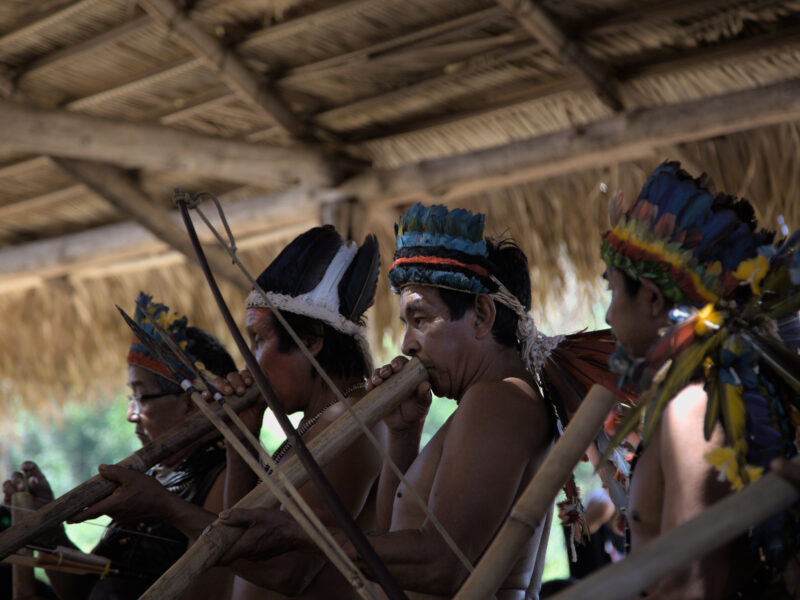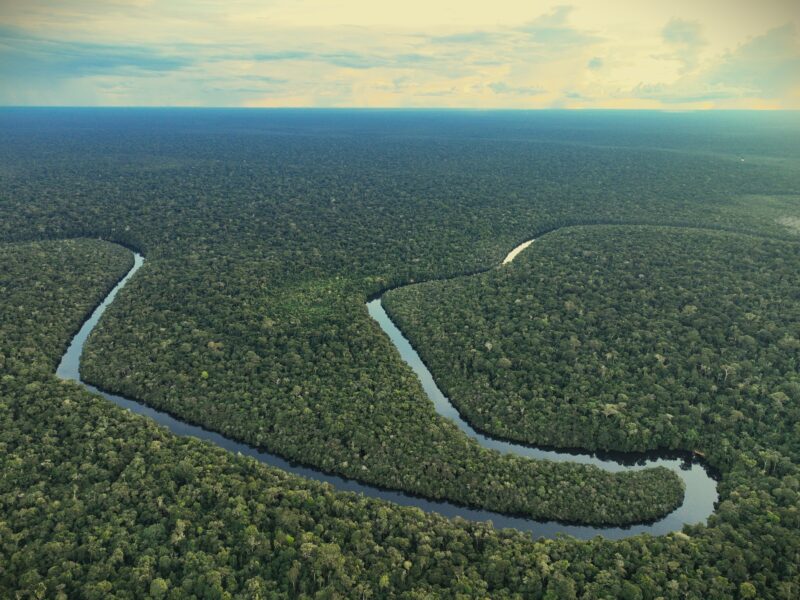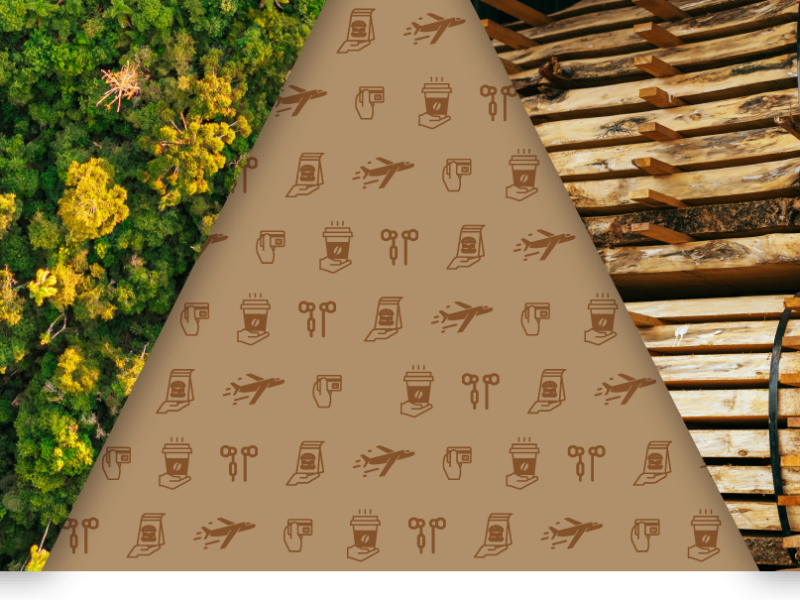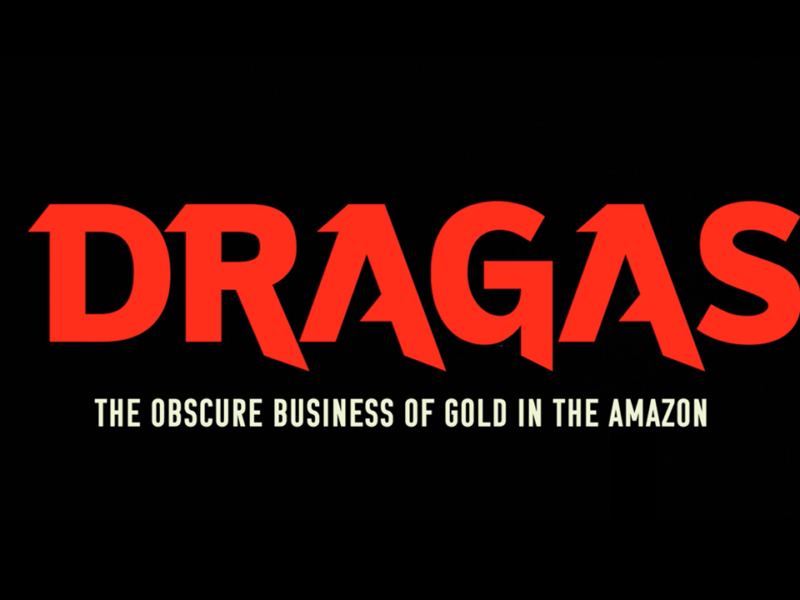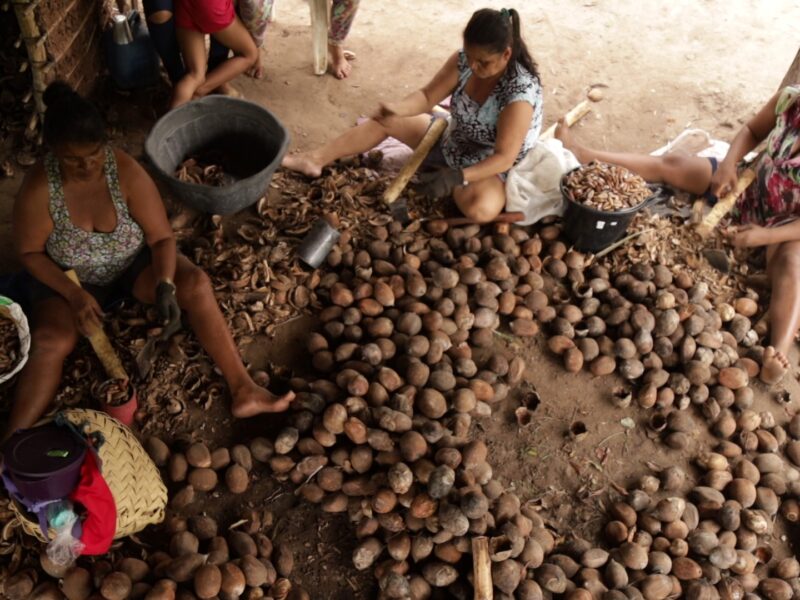The Democrat and current U.S. president landed in Manaus, mentioning millions of dollars in investments for the Amazon Fund and a new public-private partnership. However, experts interviewed by InfoAmazonia claim that Biden has fallen short of his promises and that Trump is expected to further reduce U.S. support for the Amazon.
Category: type
In the footsteps of turtle and egg smugglers in Bolivia’s Amazon Forest
By Eduardo Franco Berton When the veil of darkness falls on the forest, men armed with .22 caliber Marlin rifles come with it, and they are determined to pursue their prey. Once a bullet hits its target, the injured animal falls into the water and has to swim to the shore, where it bleeds to […]
Colombian and Ecuadorian criminal groups expand their violent influence throughout the Amazon
By Plan V* The Comandos de la Frontera, a Colombian armed group that also operates in northern Ecuador, and the Ecuadorian gang Los Choneros have imposed a regime of terror in the Amazonian provinces of Sucumbíos and Orellana, although the alliances between them are unclear. One of the illegal activities that has grown the most […]
Energy transition creates a race for strategic minerals with 5,000 applications in the Amazon
Copper, lithium and nickel, among others, are raw materials used to produce electric vehicles, batteries, wind turbines, and solar panels. The Amazon holds part of these minerals, and large companies want to exploit it. Most mining applications are in Pará state, and some of them will have direct impact on areas located in Indigenous Lands and Conservation Units.
Dam project threatens indigenous rituals, hunting areas and even gravesites in the Tenharim Marmelos Indigenous Land
InfoAmazonia and Brasil de Fato visited the territory to understand the views of the indigenous people about the construction of the Tabajara Dam – a project for a 37-square mile (97-sq. km) reservoir in Machadinho d’Oeste, in Brazil’s Rondônia state, which is expected to impact 9 indigenous lands, including Tenharim Marmelos.
Nine indigenous territories, including areas of uncontacted people, are impacted by a dam project in Brazil’s Rondônia state
The Tabajara Hydroelectric Power Plant (HPP) project will create a 60-square-mile reservoir in Machadinho d’Oeste. In addition to nine indigenous territories, an exclusive joint analysis by InfoAmazonia and Brasil de Fato confirms the influence of the project on seven areas where evidence of uncontacted indigenous groups has been found.
Top brands buy Amazon carbon credits from suspected timber laundering scam
An analysis of two carbon credit projects in the Brazilian Amazon has found that they may be connected to illegal timber laundering. The projects belong to Ricardo Stoppe Jr., known as the biggest individual seller of carbon credits in Brazil, who has made millions of dollars selling these credits to companies like Gol Airlines, Nestlé, Toshiba, Spotify, Boeing and PwC.
Documentary from Amazon Underworld reveals corruption in large-scale dredging in the Amazon
The film ‘Dragas: The Obscure Business of Gold in the Amazon’ incorporates a 1-year and 4-month investigation that maps the operations of armed groups and criminal factions exploiting illicit economies in the forest, revealing their locations and modus operandi.
Bureaucracy and administrative appeals benefit families of deforesters fined over R$ 30 million
The Heller family members are defendants in more than 26 cases related to environmental crimes in Novo Progresso and Altamira, Pará, and Itaúba, Mato Grosso. Only two cases were settled – by automatic discharge. The oldest fines date back to 1999.
Women Babassu Nutcrackers Demand Compliance with Legislation Protecting this Traditional Activity
Native to Brazil, babassu nuts grow mainly in the Cerrado savannas and the Amazon rainforest. For centuries, groups of women have cracked these nuts to survive, preserving this tradition in several Brazilian States. Although their activities are protected by the Babassu Access Act (Lei do Babaçu Livre), these women nevertheless continue to face legal and physical challenges in some States.


